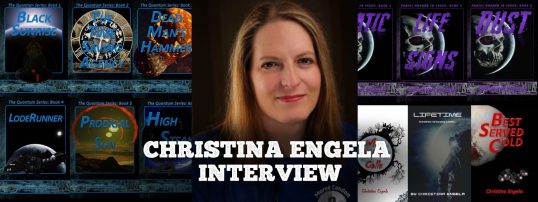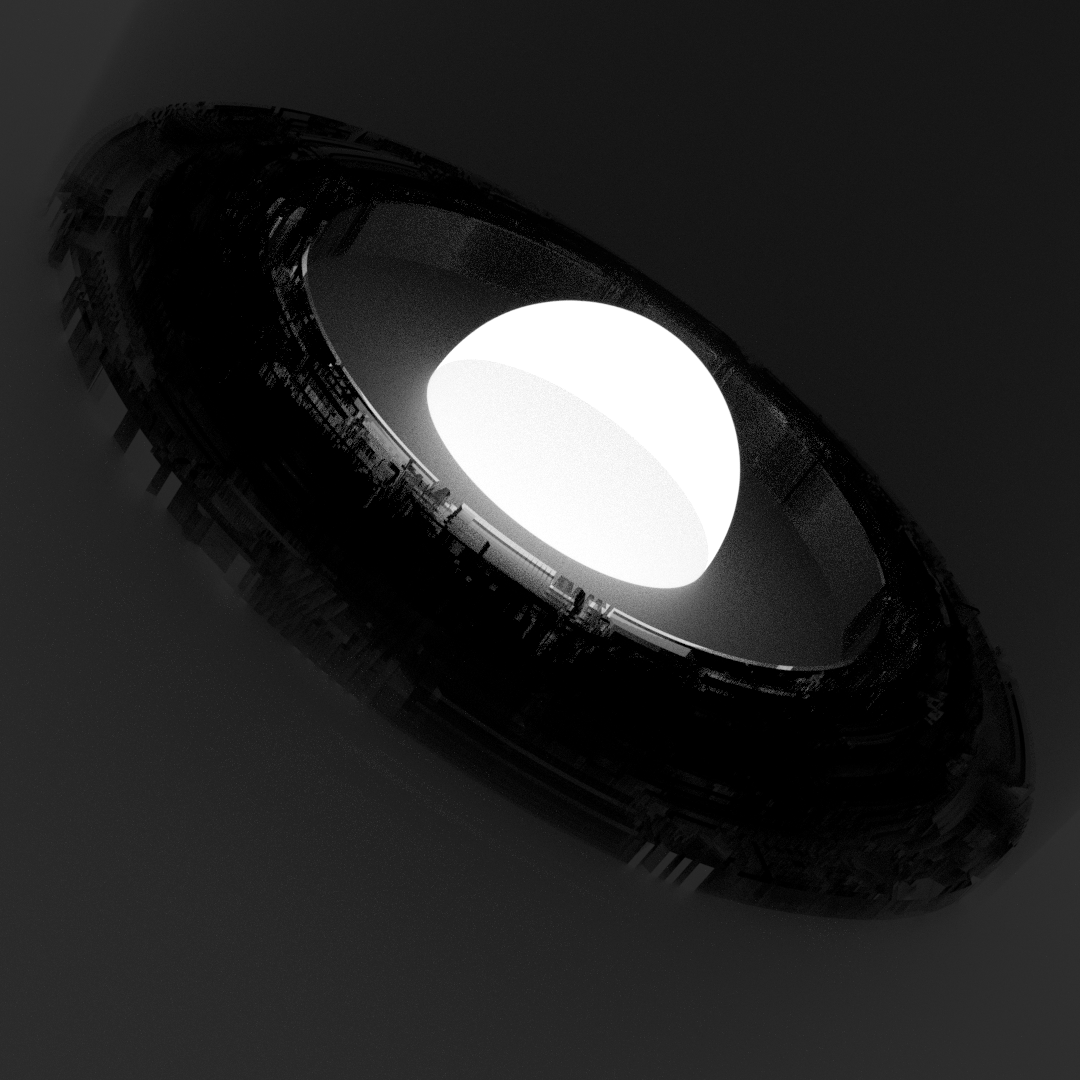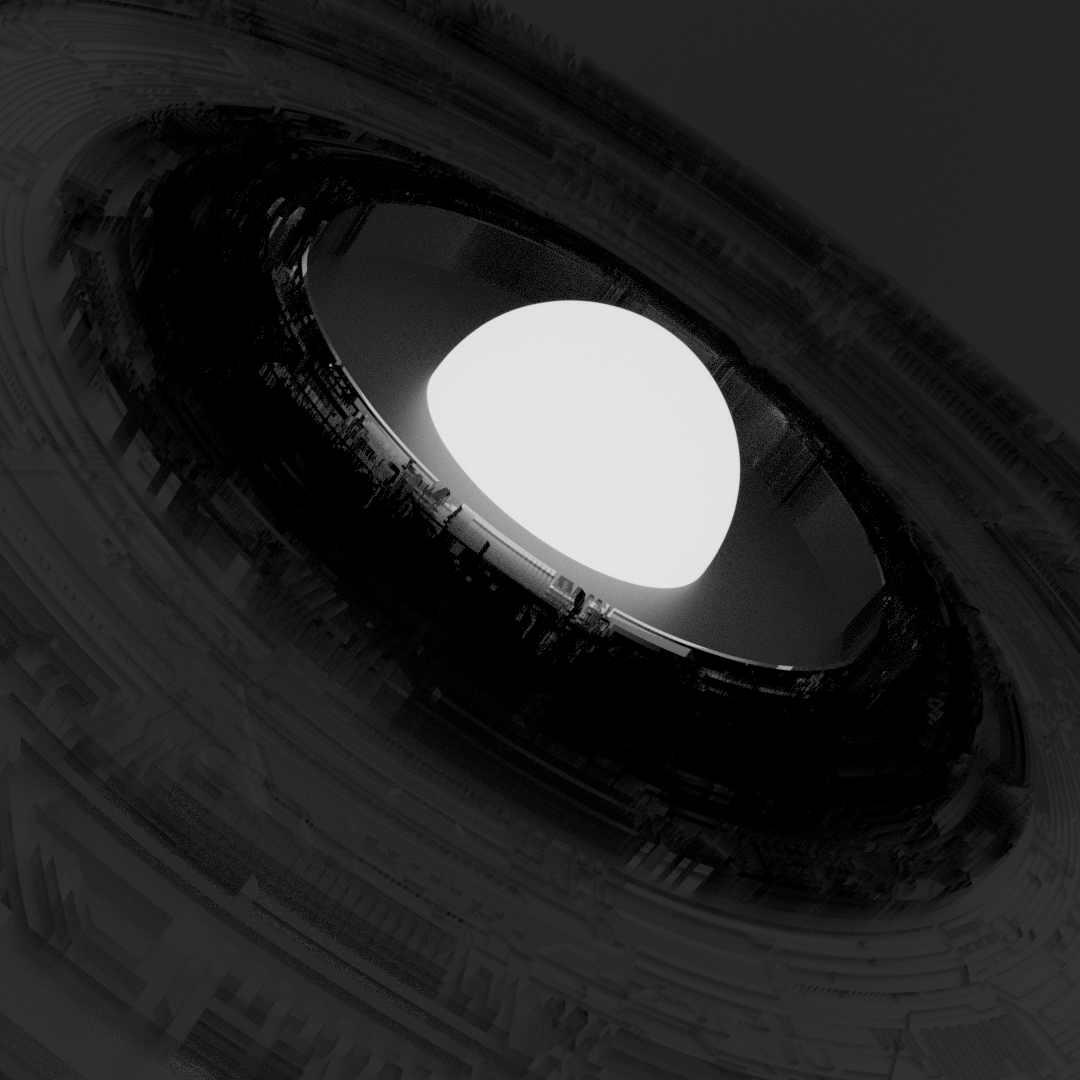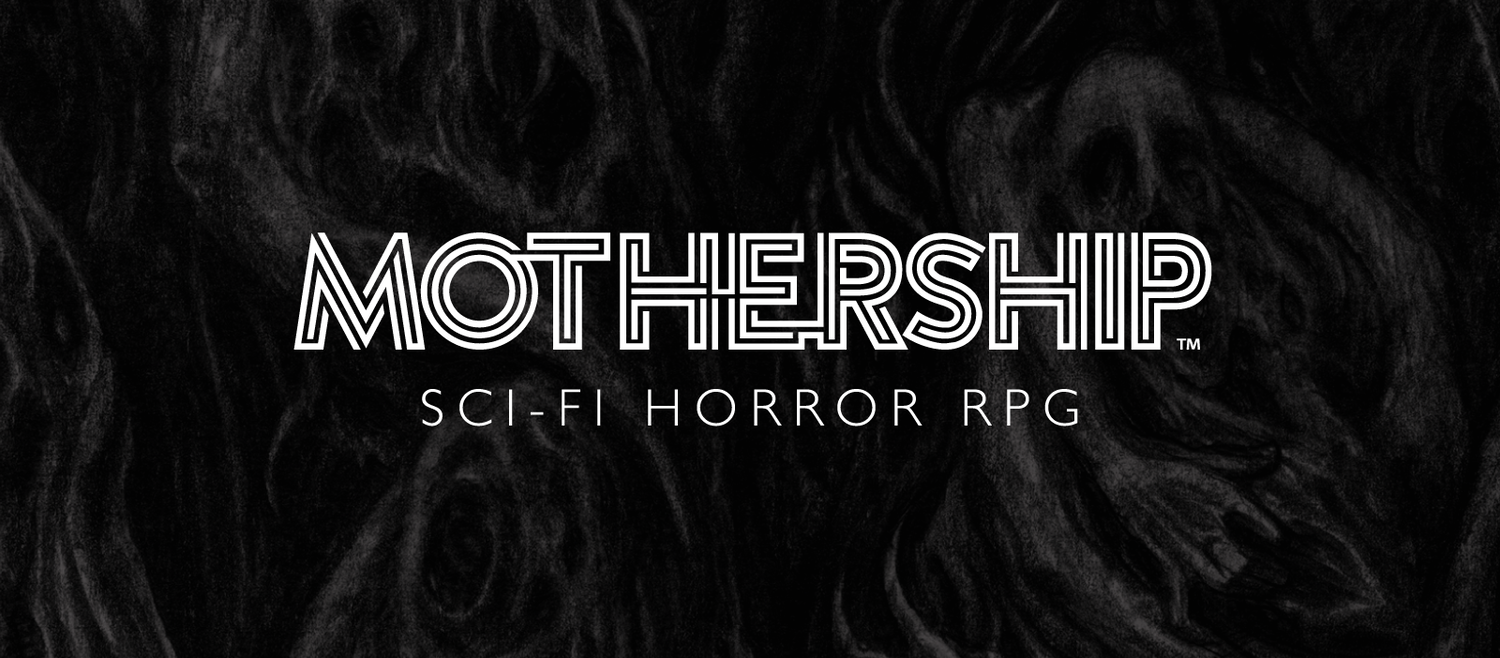Christina Engela Interview With Robb Wallace
This was an interview conducted by Robb Wallace, published on October 16, 2021.
 Christina Engela Author Bio:
Christina Engela Author Bio:
Christina Engela, one of South Africa’s most unique, prolific and skilled storytellers, has already written and published numerous fiction and non-fiction titles and is best known for her creative sci-fi stories and realistic characterization. The Port Elizabethan writer brings a wealth of personal experience to each of her stories, and with more than one new offering in the pipeline at any given time – and new titles being made available in audiobook format, the future is bound to be busy for her fans! You can find out more on ChristinaEngela.com

Check her out at Moon Books Publishing!
Get “Blachart” – book 1 in the Galaxii Series by Christina Engela on Audible now, audiobook narrated by Nigel Peever!
You can find out more on ChristinaEngela.com
“Christina Engela is a South African editor and author of horror, fantasy and science fiction novels. Her books are never short of suspense, adventure and humor, while her colorful characters and thought-provoking settings take readers into another world, making her one of the most gifted and creative storytellers. A firm supporter of the LGBT community, Christina believes that Sexual and Gender Minority characters aren’t reflected enough by authors due to a number of reasons. As such, Christina’s writing isn’t stereotypical, and her characters aren’t stereotypes, regardless of their sexuality or gender.” – Booksradar.com, June 21, 2021.
https://www.booksradar.com/engela-christine/engela.html
An interview with science fiction author Christina Engela
About Christina Engela (Who, why, when, where, what):
Q: Tell us something about your books, including your genre and your characters and/or themes.
A: My primary genre is science fiction. My usual style is that of space opera, with a good deal of action and adventure thrown in, also including elements such as suspense. I also include touches of horror and fantasy for good measure.
My lead characters tend to be heroic inspirational types like Mykl d’Angelo or Joe Lofflin, and sometimes they’re anti-heroes like Blachart the Corsair. While my leads generally fall somewhere on the LGBT spectrum, this is not always the case. For me storytelling is about the people and their issues and obstacles and how they overcome them. That’s why I don’t write high science fiction – for me, sci-fi is more about the adventures of friends living in a distant different future than about explaining the fine details of how future tech works!
Q: Where are you based?
A: I live in the city of Port Elizabeth, on the South-eastern tip of Africa, in a country called South Africa. I was born here nearly 50 years ago – and unless something goes incredibly right, I’ll probably die here too!
Q: Latest releases and upcoming titles?
A: My latest print/eBook release was a novel called “Mirror, Mirror” (2019). I just finished the first draft of another novel, “Sentinel”, which is book 4 in the Galaxii Series, but that will need to go through the editing process before anyone sees it! A few of my books have begun to appear in audiobook format – the latest is “Black Sunrise”, book 1 in the Quantum Series narrated by Darla Middlebrook. She’s still busy with book 2, which should be coming out shortly.
Q: What are you currently working on?
A: I usually work on several books at once – it tends to keep things more spicy that way, don’t you think? I just finished “Sentinel” last week, and I’m still busy with “The Song Of The Drillipede”, “Underground Movement” (Quantum book 7) and “Where Darkness Softly Treads” (Galaxii book 5). I also have a horror story lurking ominously in the background that needs finishing (shivers)! Its working title is “Pets”.
Q: What inspires you to write?
I’m not so sure “inspires” is the right word. For me writing is more than that – it’s a drive, an obsession almost. Inspiration is just about WHAT I write… I’m almost never happier than when I’m deep in thought behind a PC typing away at a story! Perhaps it’s an escape? Maybe. But what an escape it is then!
Q: When and why did you get into writing fantasy/Sci-fi?
A: To clarify, I don’t write pure fantasy – at least I haven’t yet! My main genre is sci-fi, but I blend sci-fi with elements of fantasy. The same is true for horror.
It was in about 2005 when I wrote the first book in the Quantum Series, “Black Sunrise” that I first started to blend elements of other genres with sci-fi. Yes, it’s set in a sci-fi framework, but there’s a lot of fantasy elements in the series – from the character of Fred the Arborian, who’s an alien walking, talking pot plant who causes drama and theatrics wherever he goes – to critters like the crabby-grass that roam the sidewalks and parks of Atro City, to the strato-penguins that fly high overhead, with the occasional straggler exploding if it strays too high. In later books, Vampires have also made the occasional appearance, and they begin to feature quite strongly from book 5 onwards.
In my third series, “Panic! Horror In Space”, I blend sci-fi with horror to create a satirical look at how people in a higher tech future would deal with paranormal events such as hauntings and things which so far defy scientific explanation – like zombies for example! Naturally, there’s a lot of comedy in this series because it’s meant to be a parody. There are also serious parts, and there are things in there which do truly frighten me!
Q: Who are your favourite sci-fi/fantasy writers/authors?
A: That would have to be Harry Harrison and Terry Pratchett!
Q: What is your favourite fantasy series and why?
Terry Pratchett’s Discworld series of course! I’ve always admired his writing technique, his wit and intelligence, and how he tells a story. He also had a way to construct the text so that you could read the same book again and pick up on something new that you missed the last time – which is something I absolutely admire! He told human stories, and his ability to cut through all the pretense and bullshit to expose the core of the matter was remarkable. His character and world-building was intricate and life-like. He could play his audience like a maestro conducting an orchestra. If there were any writer of any period or genre that I could hope to evoke, it would be him.
Q: What is your favourite sci-fi series and why?
A: Star Trek, without a doubt – although Star Wars always seemed to come a close second. Firefly was also right up there with them too! There’s adventure, tech, excitement – but also emotion and depth. It’s not just a bare-knuckle brawl or things blowing up for no reason, it’s about purpose, doing the right thing, helping people, being better. It’s inspirational. Best of all, the tech is based on actual science of the time! I like happy endings I suppose, because if we were to consider the story of our species with all its problems and its history of falling and rising civilizations and failures to reach the stars to attain equality with the gods of old, then Star Trek would be that happy ending.
Q: Who are some of your all-time favourite sci-fi characters? And why do you think they became your favourites?
A: Spock from the original Star Trek of course! I admired his logical mind, his Sherlock Holmes methodology and style – and his abilities to control his own pain and his struggles with his own limitations.
Q: Do you follow any entertainment outside of books? (Video Games, Boardgames, Comics etc)
A: I have a collection of around 2000 comics! I collect a fair variety, and I have most of the Star Trek comics, and also items like Magnus Robot Fighter, Flash Gordon, Buck Rogers, BSG, Space Family Robinson etc. In the graphic novel department, Tintin, Asterix and Lucky Luke are my all-time favorites. I also have a selection of figurines and models spanning the same interests – it’s just a pity that in South Africa most of anything we find here is Star Wars and not much else!
Q: What’s going on in the next few months? Anything on the Horizon?
A: I recently signed with a local publisher called Hally Park, who will finally bring my books into South African book shops in print! This country’s publishing and book selling industry is still steam-powered, and nouveau publishers like Hally Park are likely to break the strangle-hold on indie authors in South Africa! They have a contract to supply books to public schools, so what this brings forward is the likelihood that my books could be appearing in schools in future!
Q: What kind of books did you read that contributed to your upbringing, as far as fantasy and science-fiction?
A: I grew up reading a lot of sci-fi, mostly Star Trek (the TV adaptations of the original series by James Blish). I read those a lot! Also, there was an old series called Tom Swift by Victor Appleton that I enjoyed too.
Tintin was a huge influence on me as a child, and although it wasn’t sci-fi on its own, Tintin and his companions did travel to the Moon in one of their adventures (Destination Moon & Explorers On The Moon), and were saved in another by a UFO (Flight 714)!
Q: Was your upbringing pretty geeky?
A: (Whispers) I loved learning about dinosaurs and science and space travel from books, and read encyclopedias at the breakfast table! When I was 14 I had fifty copies of National Geographic magazine on my shelf!
Q: Do you have a process, do you plan or do you fly by the seat of your pants?
A: I plan the broad strokes of the story, but the finer detail – well, that writes itself!
Q: How has your writing process changed since you first started writing?
A: When I first started writing, it was literally with pen and paper! Since 2003 it’s been digital. This has made revising and editing much easier – and relegated writer’s cramp to the past! Having the internet handy for research has also improved the process.
Q: How long does it normally take you to write a novel, and what proportion of the time is spent doing what?
A: That varies! I worked on “Blachart” from 1991 until 2005 (14 years!) while “Sentinel” (begun in 2020) took just over a year to complete the first draft. The difference here was that I’d started writing “Blachart” in the old-school style – with a pen and paper, rewriting each draft over manually, which is very time consuming and labor intensive! In 2003 I digitized it and then it became much quicker and easier to write and edit my books! In 2005, I wrote the first three books in the Quantum Series in just three months!
Starting a new story for me begins with mentally developing a picture of what I’d like it to be about, then working out how it will influence or fit in with the over-all story arc of whatever series it’s in, and then planning which characters will appear in it. If it’ll be previously used characters, that saves time, but if I need to invent new ones, I spend a little time working out who and what I’ll need, determine their roles and create interesting backgrounds for them, picture their appearances and personalities and so on. Often I won’t know I need a new character until I get to a certain point in the story, and then I’ll do this on the spot!
I generally work on more than one project at a time, so in one week I might work on two or three different books more or less simultaneously. I do this so that I don’t get in a rut; it helps to keep it interesting – and if the writer remains interested, then the readers will too!
Q: What is your favourite part of the writing process?
A: When I hit my stride and I’m typing away furiously, my mind already two sentences ahead of what’s appearing on my screen! It’s a rush!
Q: Have your previous vocations influenced your writing?
A: Definitely. I’ve been a lot of different things in my life, including being a soldier and a computer technician and I have plenty of anecdotes and experiences to enrich my writing!
Q: Do you involve other people in your writing, as collaborators or editors? How do you make this work?
A: Not often, but it has happened! I co-wrote some short stories with Alex S. Johnson, and I assisted Deena Larsen with the translation of her Rose Project into Afrikaans. Collaboration can be very difficult, so there needs to be some form of chemistry between participating writers! As for my own writing, I do it all myself.
Q: As far as writing goes, what do you use? Software, Apps, Hardware etc?
A: For the last decade or so I’ve typed and processed my stories on a succession of laptops which I carry virtually everywhere I go! I use nothing special, just Word to type and format the manuscripts in, PowerPoint to design covers, posters and book trailer videos, and Exel to track and manage sales and distribution.
Q: Do you do a lot of research for each book? If so how do you conduct your research?
A: Define a lot! Ha ha. Well, it depends on the individual book. There might be aspects of the book that I’d need to research, and where my personal experience and my creativity run out, my usual avenue is the internet!
Q: How do you overcome blank writing spells?
A: I start by opening a manuscript I’m still working on, read through it, and then do a little editing – which turns into embellishing – and then (if uninterrupted) this turns into full-blown writing. Honestly, if nobody stops me I might not be seen for hours!
Q: A number of fantasy/sci-fi authors have been known to use art, music, exercise, alcohol and even drugs as a way to find inspiration to enter the zone! Do you use any tools to enter into your creative headspace?
A: I find that music helps.
Q: Do you prefer to write in silence and or have some sort of sound in the background?
A: That depends on my mood. Mostly I prefer to have soft music in the background, usually playing on the laptop I use for writing!
Q: Will your next book be traditional or indie published?
A: “Sentinel” (already completed) will be published exclusively through Hally Park Publishers.
Q: Would you recommend self-publishing to aspiring authors, or would you suggest a more traditional path?
A: Definitely. It’s pointless and counterproductive to sit around and wait for a traditional publisher to accept your manuscript, or to “discover” you. Meanwhile, you could be self-publishing, refining your work, and most importantly, building your audience and your brand!
Q: What sort of input do you give to formatting, cover design, marketing?
A: I edited, formatted and designed covers for my books, and also did most of the marketing. In the case of books distributed through Moon Books or Hally Park, they have either used the covers I supplied with them, or asked me to approve the ones they made to suit them.
Q: What do you do pre and post-release to help get your books noticed?
A: I mention the book and its series in posts and articles, also in my newsletters. I also write articles to promote them and share these all over social media. I promote them to reviewers and then circulate and promote the reviews.
Q: Marketing is so important nowadays, what’s your best advice to fellow authors?
A: Get rich some other way  Write for the love of it. Marketing consumes all your free time which would be better spent writing more.
Write for the love of it. Marketing consumes all your free time which would be better spent writing more.
Q: How did you decide the pricing of your material; how did you go about promotion/advertising and distribution of your work?
A: Since I live in South Africa and most of my book sales are via the internet, the income is calculated in USD. The Rand-Dollar exchange rate is pitiful really, so in terms of sales this is the only time it benefits me at all! For every $1 I get in royalties, that works out to around R15 – so conversely what I decided to do was price my eBooks as low as I reasonably could. To determine a base-line price I researched similar books by other authors and then set what I felt was a reasonable low price for my books! In most cases, my books go for around $2.99, which I think is quite cheap! Even in South African Rands, it only works out to about R60, which is far cheaper than some other similar novels in eBook format!
As for marketing and promotion, I was always a firm believer that this should be handled by publishers – but I’ve had to roll with the punches, and accept that this simply doesn’t seem to happen anymore. My US publisher has run a few Facebook ads in the past though it’s hard to gauge how effective that has been.
When it comes to spending power, the currency conversion rate that worked in my favor in terms of earnings, now works against me in this department as the ‘only $50’ asked by some internet marketers works out to R750! The worst part is, that’s per title, not per author – and I have over 30 titles I need to market! The $3000 per title asked by others at the opposite end of the scale works out to R45,000! (Plop!) I have no idea what sort of person thinks a poor struggling author could possibly afford to pay fees like that, but what I do know is, they’re delusional! Consequently, I had to learn to do marketing on my own, picking up tips here and there and figuring it out as I went along. Honestly, there’s only so much you can achieve with free marketing.
Q: Advice on making an impact in today’s busy Scifi and Fantasy markets.
A: It’s so difficult to stand out in todays’ crowded markets! There are so many writers out there all peddling their stories as unique and creatively different or innovative – and readers really are spoiled for choice! The only thing, I think, writers can hope for without having the power of a big publishing or advertising company behind them, is to stand out enough to have their own little niche audience form around them.
Q: Must-read sci-fi novels?
A: “The Stainless Steel Rat” and “The Technicolor Time Machine” by Harry Harrison, “The Door Into Summer” by Robert Heinlein.
Q: Must-read non-sci-fi novels?
A: The Discworld series by Terry Pratchett, “Riotous Assembly” by Tom Sharpe (in fact, anything by him!)
Q: Most prized book in your collection?
A: My Tintin and Asterix books!
Q: Do you read digital, paperback or hardback or do you listen to audiobooks?
A: I’m not too picky! These days cost is a factor, so being well-aware that eBooks are cheaper, I often read those – and I don’t blame other readers for doing the same! EBooks are easier to read in the dark, after all – or on the move! I like audiobooks too, especially the ones that have sound effects and lively narration! They remind me of the dramatized radio shows I grew up listening to!
Q: What are some difficulties you’ve experienced in your writing career; how do you handle book critiques/criticism?
A: My first traditional publisher was a small press that made me take down all my self-published books – and then spent the next two years putting up just two of them. In the meantime I lost goodness knows how many sales while I waited for them to edit, format and design new covers for those books… and I also had no items to link to in order to promote! In short, while I waited, the reading world forgot about me. During the time I was with them, the publisher did zero marketing other than for their own staff members books; my own books were not promoted at all other than an initial announcement at release, and when I asked about marketing I was gruffly told “that’s how the publishing industry works”! In addition, they were as transparent as concrete about sales – and every time I made enquiries, I was rebuffed or spoken down to. Then after wasting two and a half years of my time, one day out of the blue, they decided to rebrand themselves as a “pure horror” publisher and dumped the rest of their author stable, and me along with them.
Since then I’ve been stubborn about sticking to self-publishing and distrustful (and even resentful) of so-called traditional publishers! As a writer one has to be very careful who one signs contracts with! I find indie publishing to be an integral part of the creative process – not only do I get to write the story, I also get to design the cover and layout!
I have since signed with two small press traditional publishers (one in the US and the other in South Africa) – which means that I actually have two publishers at the moment – but I still retain the right to distribute existing titles on my own via my own indie channels as well! That way I don’t need to lose any income (or my internet footprint) while I wait for any promises from said publishers to materialize!
When it comes to book reviews and critics, and even reader reviews, I’ve had good experiences over-all so far! That said, I know sci-fi isn’t for everyone, and even sci-fi that includes a few novelty items like vampires or talking plants isn’t for every sci-fi fan. Mind-bogglingly, some people don’t like sci-fi that contains LGBT characters that aren’t horrible cliché’s or disparaging stereotypes, or which tackle current affairs and social issues head-on, and will take the trouble to leave their comments or send nasty notes via email.
I’ve always rolled with the punches and taken criticism from whence it came. A friend of mine once sagely advised me that ‘there’s no such thing as bad publicity’, so I list all my hate mail on my website for posterity. I visit them now and then for a good laugh.
Q: What are the best experiences in your writing career?
A: Writing itself (of course)! Finishing a new story and looking through it. Announcing to the world that my new book is available. Reading genuine heart-felt and honest reviews of my writing. Stumbling across public comments about my books on websites or forums etc. that I didn’t know about. People I meet in shops asking about my next book. Feeling fulfilled when I look back at one or more of my stories and notice something funny or profound I’d forgotten about.
Q: What are some encouraging words you’d give to another author/writer?
A: Write for yourself, publish for fame and fortune by all means – but never forget who it is you’re writing for.
Get in touch with author Christina Engela:
Website & Social Channels:
My author website & blog – https://christinaengela.com/
Moon Books: https://moonbooks.net/authors/christina-engela/
My Facebook page: https://www.facebook.com/ChristinaEngelaAuthor
Twitter: https://twitter.com/pinkfuzzyninja
GoodReads: https://www.goodreads.com/author/show/3358833.Christina_Engela
Book links:
Amazon: https://www.amazon.com/Christina-Engela/e/B00OBY5PD8/
Barnes & Noble: https://www.barnesandnoble.com/s/christina+engela?_requestid=2972541
Newsletter:
I have a monthly newsletter which is circulated from my website (https://christinaengela.com/)! I also put out weekly updates of goings-on in my life!
 #1 - Black Sunrise by Christina Engela - Cover sml">
#1 - Black Sunrise by Christina Engela - Cover sml">
 #2 - The Time Saving Agency by Christina Engela - cover sml">
#2 - The Time Saving Agency by Christina Engela - cover sml">
 #3 - Dead Man's Hammer by Christina Engela - cover sml">
#3 - Dead Man's Hammer by Christina Engela - cover sml">
 #4 - Loderunner by Christina Engela - cover sml">
#4 - Loderunner by Christina Engela - cover sml">
 #5 - Prodigal Sun by Christina Engela - cover sml">
#5 - Prodigal Sun by Christina Engela - cover sml">
 #6 - High Steaks by Christina Engela - cover sml">
#6 - High Steaks by Christina Engela - cover sml">


 #1 Blachart by Christina Engela - Cover sml">
#1 Blachart by Christina Engela - Cover sml">
 #2 Demonspawn by Christina Engela cover sml">
#2 Demonspawn by Christina Engela cover sml">
 #3 Dead Beckoning by Christina Engela - Cover Sml">
#3 Dead Beckoning by Christina Engela - Cover Sml">


 #1 Static by Christina Engela - Cover sml">
#1 Static by Christina Engela - Cover sml">
 #2 Life Signs by Christina Engela - cover sml">
#2 Life Signs by Christina Engela - cover sml">
 #3 Dust by Christina Engela - cover sml">
#3 Dust by Christina Engela - cover sml">
Until next time, keep reading!
Cheers!

Catch me on social media! 






Facebook | Twitter | LinkedIn | Academia | Minds | Instagram | GoodReads | Author’s Database | Library Thing | YouTube | Pintrest | Stage32 | The Book Marketing Network
All material copyright © Christina Engela, 2021.
#author #autobiography #best-books-with-transgender-protagonists #bio #biography #books #books-with-lgbt-characters #christina-engela #deep #disclosure #ebooks #experience #exploration #fiction #interview #lgbt-heroes #moon-books-publishing #paperbacks #personal #radio-interview #robb-wallace #sci-fi-books #sci-fi-series #sci-fi #science-fiction #science-fiction-audiobooks #science-fiction-books #science-fiction-series #scifi #south-africa #suspense #thriller #transgressive #writer
Originally posted at: https://christinaengela.com/christina-engela-interview-with-robb-wallace/













 Christina Engela Author Bio:
Christina Engela Author Bio:
 Write for the love of it. Marketing consumes all your free time which would be better spent writing more.
Write for the love of it. Marketing consumes all your free time which would be better spent writing more. #1 - Black Sunrise by Christina Engela - Cover sml">
#1 - Black Sunrise by Christina Engela - Cover sml"> #2 - The Time Saving Agency by Christina Engela - cover sml">
#2 - The Time Saving Agency by Christina Engela - cover sml"> #3 - Dead Man's Hammer by Christina Engela - cover sml">
#3 - Dead Man's Hammer by Christina Engela - cover sml"> #4 - Loderunner by Christina Engela - cover sml">
#4 - Loderunner by Christina Engela - cover sml"> #5 - Prodigal Sun by Christina Engela - cover sml">
#5 - Prodigal Sun by Christina Engela - cover sml"> #6 - High Steaks by Christina Engela - cover sml">
#6 - High Steaks by Christina Engela - cover sml">

 #1 Blachart by Christina Engela - Cover sml">
#1 Blachart by Christina Engela - Cover sml"> #2 Demonspawn by Christina Engela cover sml">
#2 Demonspawn by Christina Engela cover sml"> #3 Dead Beckoning by Christina Engela - Cover Sml">
#3 Dead Beckoning by Christina Engela - Cover Sml">

 #1 Static by Christina Engela - Cover sml">
#1 Static by Christina Engela - Cover sml"> #2 Life Signs by Christina Engela - cover sml">
#2 Life Signs by Christina Engela - cover sml"> #3 Dust by Christina Engela - cover sml">
#3 Dust by Christina Engela - cover sml">












